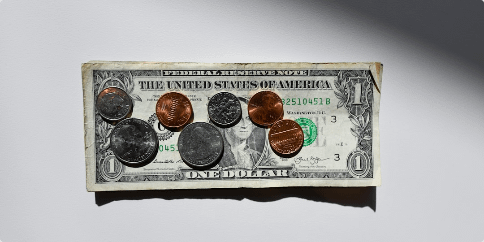There is a lot that people say outside there regarding the capital needed to trade currencies. Some traders say you need thousands and thousands of dollars to be profitable in Forex, while others see no distinction between a small and a large trading account.
In this post, we will look at what determines the amount you need as starting capital in Forex.
Where you live
Your geographical location will greatly influence the deposit needed to trade currencies. Every country has varying trading regulations, living costs, and economic conditions that dictate the required initial investment.
For example, countries with strict regulatory environments, especially in the global North, may sanction a minimum deposit for certain trading accounts to ensure traders have enough capital to cover potential losses.
If you live in a developed country where living standards are high, you will most probably need a lot of capital to make enough from trading and support your lifestyle. In less developed countries where living standards are relatively low, you may not need thousands of dollars to trade currencies.
In my trading career, I have interacted with traders in third-world countries who started with as little as $100 or $200 in their accounts and were still profitable. Personally, there were times when I traded with as little as $50 and still made money out of the market.
Besides, traders in stable economies might feel more confident investing larger amounts in the Forex market. The opposite is likely to happen in less stable economies where inflation is high—traders might prefer smaller deposits to minimize risk.
How much do you want to earn/risk appetite?
What are your financial goals? What is your risk appetite? Understanding how much you want to earn and how much risk you’re willing to take can help you set realistic deposit amounts.
If your goal is to collect substantial profits from the market, you may need a larger deposit to leverage more positions or seize more trading opportunities. For example, having a profit target of $1,000 daily might require a more substantial initial deposit compared to a target of $100 daily.

In addition, traders with a higher risk tolerance might be comfortable with smaller deposits, as they’re willing to take on higher leverage and potentially larger losses. Conversely, traders with a lower risk appetite might prefer larger deposits to mitigate risks and ensure more stable returns.
Your broker
Your choice of broker too can affect the capital required to trade currencies. Factors like fee structures, trading rules, type of accounts offered, leverage options, and minimum deposit rules vary between brokers.
Many brokers today have accounts that cater to both beginners and experienced traders. Accounts for novice traders often come with low minimum deposit conditions, while those targeting experienced traders come with higher initial requirements.
Understanding the broker’s fee structure, including spreads, commissions, and overnight financing costs, can help you determine how much deposit is necessary to cover trading costs without quickly depleting your account.
The type of trader you are or your trading style
Are you a day trader, a position trader, or a scalper? If you hold positions for several weeks or months (long-term trader), you will need a lot of capital to withstand the huge variances that sometimes trades make over time and cover adequate margins.
Scalpers, on the other hand, may not need lots of capital in their account as they aim to close positions after a short duration. Swing traders hold positions for several days to weeks. They may need moderate deposits, as they trade less frequently.

Day traders open and close positions within the same trading day. Like Scalpers, they may not need larger deposits in their trading account, as they would want to close all positions before the end of day and withdraw their money.
The amount of capital required will depend on your trading style and strategy, as different trading styles require different amounts of capital to execute trades effectively.
Conclusion on how much equity you need to trade currencies
Throughout my trading career, I’ve traded with both small amounts (as little as $50) and large sums (up to $100,000) with a prop firm. In low-income countries, you can succeed with a small amount if you follow a solid trading plan.
However, in countries where living standards are high, you might need at least $1,000 in your trading account to earn enough to pay your bills. I also uncovered that regardless of your trading capital, you will face similar challenges (over-trading, over-leveraging, FOMO, bias, etc.) if you are not disciplined and lack proper risk and money management strategies.
Overall, when trading currencies, trade with the amount you are willing to lose.

Leave a Reply